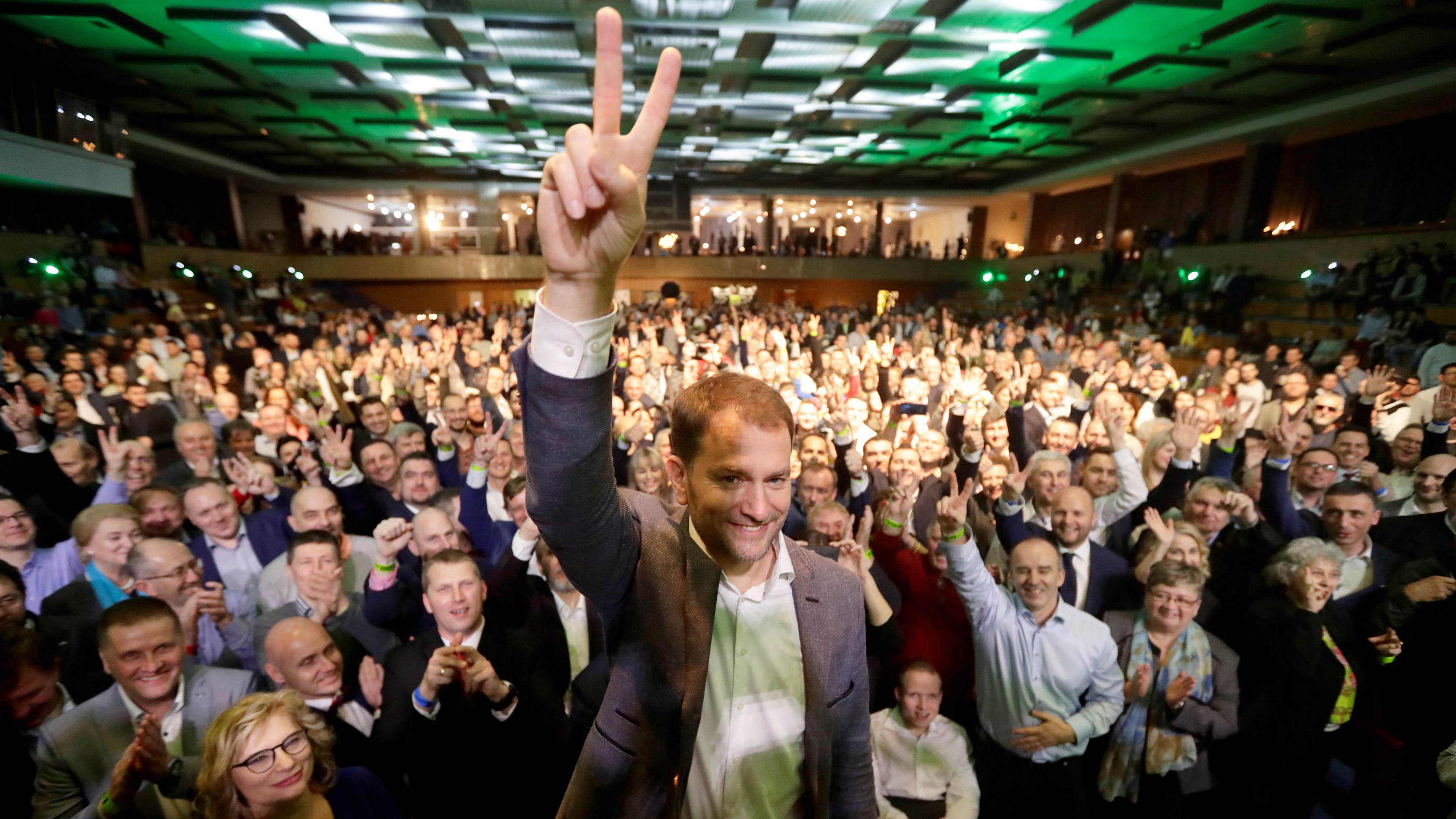Slovak opposition led by the Ordinary People party (OLANO) won an emphatic victory in the country's parliamentary election, as voters angry with graft routed the ruling center-left Smer that has dominated the political scene for over a decade.
Results from 96.16 percent of voting districts showed on Sunday that OLANO, a politically amorphous, pro-European Union and pro-NATO movement focused on fighting corruption, took 24.95 percent of the vote, far ahead of the ruling Smer with 18.5 percent.

Ordinary People party leader Igor Matovic gestures in front of supporters, Trnava, Slovakia, February 29, 2020. /Reuters
Ordinary People party leader Igor Matovic gestures in front of supporters, Trnava, Slovakia, February 29, 2020. /Reuters
Support for OLANO surged in recent weeks, from less than six percent late last year, concentrating a protest vote fed by the murder of an investigative journalist and his fiancee two years ago.
Seats won by other liberal and conservative parties gave OLANO a strong position to lead negotiations to form a new center-right government.
OLANO leader Igor Matovic has pledged to clean up politics, an ambition encapsulated in his party's slogan: "Let's Beat the Mafia Together."
"We take the result as a request from people who want us to clean up Slovakia. To make Slovakia a just country, where the law applies to everybody regardless if he is rich or poor," Matovic said after most of the votes were counted.
Matovic said he would reach out to leaders of three other parties – the liberal Freedom and Solidarity, the conservative For the People of former president Andrej Kiska, and the socially conservative, eurosceptic We Are Family – to form an alliance that would have constitutional majority of over 90 seats in the 150-seat parliament.
Prime Minister Peter Pellegrini from Smer acknowledged defeat and said the party's run in the office, for 12 out of the past 14 years, may be over.
Smer scored its worst result since 2002. Its nationalist and Hungarian minority allies did not win any seats, the first time in decades that Hungarians will not be represented.
Predictions that the far-right, anti-EU and anti-NATO People's Party could make strong gains were not borne out and the party won just over eight percent.
Source(s): Reuters